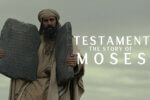Amid massive protests in Kiev, believers prayed, sang and demanded an end to corruption
While Ukraine teetered on the edge of political chaos in late 2004, thousands of evangelical Christians gathered in Kiev, the capital, for several weeks beginning in late November to ask God to intervene in the country’s bitter presidential contest. Their peaceful demonstration–and the election of pro-Western candidate Viktor Yushchenko in the Dec. 26 runoff–proved to Moscow and the world that faith has triggered major changes in this former Soviet republic.
Yushchenko’s win could signal the end of mafia control of Ukraine–a goal that was at the top of the list of prayer concerns when Christians gathered in prayer tents and open-air rallies in Kiev’s Independence Square.
After an Oct. 31 election and a Nov. 21 runoff, pro-Moscow candidate Viktor Yanukovych was declared the winner. But angry protesters hit the streets when international monitoring organizations confirmed that the election had been rigged. Parliament then ordered a new vote and mandated strict reforms to prevent ballot stuffing.
The contest between Yanukovych, 54, the current prime minister, and pro-Westerner Yushchenko, 50, divided the country into two factions–those who favor maintaining ties to the old Soviet way of life and those who want a progressive democracy with more economic freedoms.
Yet despite these sharp divisions, the nation’s Christians stood together. In unison they backed Yushchenko and the freedoms he promised.
“What is happening here is an answer to prayer,” said Sunday Adelaja, pastor of the 25,000-member Embassy of God Church in Kiev. “It is unbelievable. The Christians are in unity. The Baptists are standing beside the Orthodox people–which is amazing because the Orthodox hated us before.”
Religious tension has been high in Ukraine since the nation gained independence from the former Soviet Union in 1991. Then there were only 250,000 evangelical Christians in a country dominated by nominal Orthodox Church adherents. Today there are 3 million evangelicals.
“That is 1,000 percent growth in a decade,” noted Pentecostal theologian Gary Kellner, who helped found a seminary in Kiev in 2001. “What God is doing in Ukraine is unprecedented.”
Adelaja’s church, which meets in 34 locations in Kiev on Sundays, is considered Europe’s largest. What is more unique is the pastor’s story: He is a Nigerian who studied at a communist university in the former Soviet Union.
Old-regime politicians in Ukraine–many of them under the influence of the underground mafia, or bratva–don’t appreciate Adelaja’s influence and have tried several times to deport him. When Charisma visited the Embassy of God’s massive Sunday celebration at a sports arena in Kiev, city officials turned off the church’s electricity to intimidate members.
“They claim that I use ‘black magic’ to win converts,” Adelaja said. “They say it is a disgrace that a black man is teaching Ukrainians.”
Because of the size of Adelaja’s congregation, and because of his race, he has borne the brunt of resistance from government forces. KGB surveillance officers have stalked him, and he was forbidden to travel out of the country from 1997 to 2000. He has been told he does not have the right to preach and that his members have become “zombies.”
“They tell me it is impossible to see a drug addict delivered. So I invite them to come to see 1,000 people who are free from drugs,” Adelaja said.
Adelaja keeps a scrapbook of newspaper articles that have been written about him by the government-controlled media. One headline reads: “Will This Black Man Be President of Ukraine?” A Yanukovych campaign pamphlet warned that a vote for Yushchenko might give more power to “the Negro sect” in Kiev–an apparent reference to Adelaja’s church.
Adelaja is not the only African leading a church in this predominantly white nation. Henry Madava, a Pentecostal from Zimbabwe, pastors the second-largest congregation in Kiev. During the historic prayer vigils held on Independence Square, members of his 8,000-member Victory Church operated two feeding centers and provided a medical team.
Some of the pastors in Madava’s satellite congregations were threatened or forced out of their buildings because they would not support Yanukovych. “The newspapers promised to do away with our churches as soon as [Yanukovych] won the election,” Madava told Charisma.
Valeriy Reshetinskiy, pastor of Christian Hope Church in Kiev, said his congregation was kicked out of its rented building after some government agents told him he must support Yanukovych. Meanwhile a pastor in Reshetinskiy’s network of churches suffered worse.
“One of our pastors from the Lugansk region was beaten,” Reshetinskiy said. “He was found a day later, barely alive.”
Yushchenko believes the power of the mafia in Ukraine became obvious in September when he says he was poisoned during a campaign event. His face was badly disfigured, and sympathy for him may have been a determining factor in his election victory.
Then again, Christian leaders say prayer was the real determining factor. Many of the protesters who camped out on the city square were fasting. Government agents reportedly told their superiors that the mood at the demonstrations was “like a revival service,” Adelaja said.
Kellner, who bluntly described Yanukovych as “a stooge of the mafia,” said Yushchenko’s victory shows that evangelical churches have become a powerful force in Ukraine.
Madava, meanwhile, says he saw the direct intervention of God in the election. “God is totally removing the corruption that has ruled this country for 13 years,” he said. “God is bringing an awareness in the people of their freedom.”
Reshetinskiy said leaders of the political opposition were surprised that so many people engaged in protests.
“Thousands of people came out in the streets and were full of love and patience–that was the amazing thing,” said Reshetinskiy. “And a church that was non-political suddenly was swept by an urge to pray for change.”
Adelaja said Ukraine’s Christians are no longer intimidated by government coercion. And they intend to run for political office too, he noted.
Already, one of his staff pastors, Sofia Jukotanskaya, has created a Christian political party. She paid a high price for her activism during the presidential campaign last July, however, when her adult son was assassinated–in an apparent attempt to intimidate her.
She says she will not be stopped. “If my only son will be sacrificed in order to see this nation saved, then I am going all the way,” Jukotanskaya told Charisma.
Adelaja says he intends to press forward for a national transformation.
“It used to be that Christians here were passive and intimidated. No more,” the pastor said. “Every Christian leader has been in the streets. Now Christians know they have authority.”
J. Lee Grady






Leave a Comment
You must be logged in to post a comment.